Ask A Comedian: Why are mental health issues common among comedians?
Laughter is the best medicine

March 20 marks the International Day of Happiness, an annual celebration established by the United Nations since 28 June 2012. The day serves to remind us that being happy is a human right that’s worth celebrating, and to inspire people to spread positivity to others. After all, the pursuit of happiness is a common human goal.
What better way to commemorate this special day than with a certain group of people whose job description is literally to make people happy (or at least have a laugh)? We’re talking about comedians, of course.
For the third instalment of our Ask A __ series, we get to know three KL-based stand-up comedians, what makes them happy, and their relationship with humour. (Spoiler: it’s not all jokes and laughter ahead.)
Kavin Jay

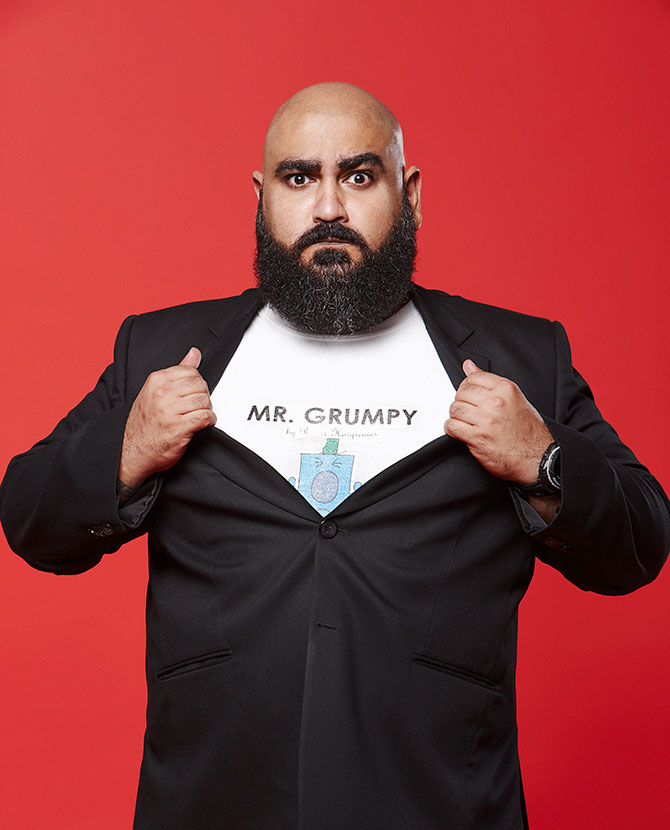
When and how did you decide to do comedy for a living?
I used to watch a lot of stand-up comedy in the UK and when I came back, I realised that there were not many avenues for me to watch it locally. The only way I could enjoy stand-up comedy was to create my own shows. However, I put it off because there was always going to be a tomorrow. It was only after my brother passed away that I realised life’s too short, and that I need to start this now. I didn’t know what I was doing and I was not very good at it at first, but I slowly learnt the ropes and realised that this could be a career choice. Obviously, it didn’t happen overnight. I started in 2006, but I only became a professional comedian circa 2017.
How would you describe your relationship with humour?
I think humour is my default defense mechanism. When I get angry or sad, I use humour to cope. Whenever something makes me uncomfortable, I deal with it with humor. You could say humour is my best friend who gets me out of trouble.
Are all of your comedy materials based on real-life experiences?
Mostly, yes. That’s what I’m familiar with and that’s what I can make fun of. Obviously, the stories are exaggerated but they are mostly true. I find that when I joke about something that really happened in real life, people relate with it more than if I created a fantasy of stories.
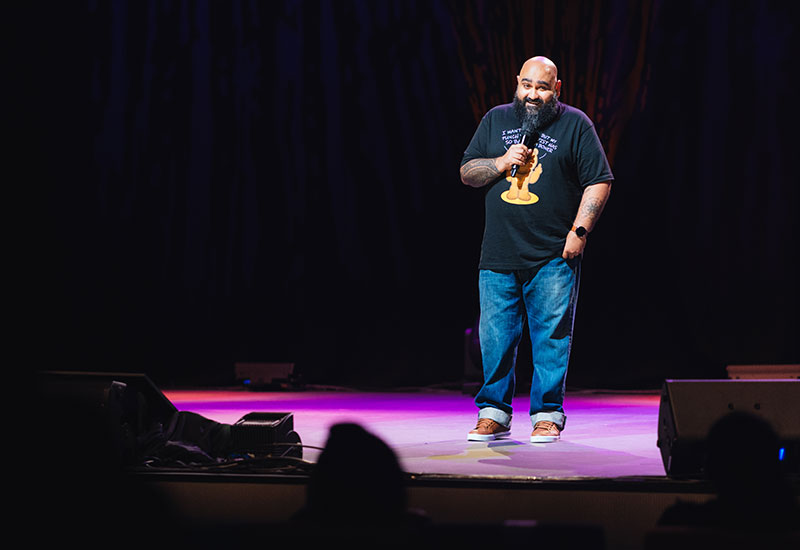
It’s a comedian’s job to make people laugh/happy; but what makes you happy?
Video games. They take me to a whole different reality where I can escape myself and basically live the life of someone else. I could spend hours playing video games, sometimes earning the irk of my wife.
Can you share your proudest or most memorable joke or comedy project so far?
My proudest moment is to be on Netflix (watch: Everybody Calm Down). I could never imagine something like that when I was starting out. It shows that if you dream hard enough, maybe you can achieve what is impossible.
What is the most challenging part of being a comedian?
The misconception of what we do for a living. A lot of people think we are just clowns on stage and don’t earn an honest living. The older generation doesn’t think that this is a good career option. And that includes the people who are in charge of our media because they don’t trust stand-up comedians to be able to censor themselves. Stand-up comedy has always been the art for the working class and has always been seen as a pariah in the art scene.

It’s no laughing matter that some comedians suffer mental health issues. As a comedian, can you share why and how do you deal with the pressure that comes with your job?
Unfortunately, I also suffer with mental health issues, and it’s a mystery how many comedians go through the same. I think it’s because we put so much energy in making people happy on stage that sometimes we don’t have enough for ourselves. The way I deal with it is to have a strong support structure—my wife has been very supportive of what I do and she’s always on the lookout for any triggers. Also, I play games a lot to relieve stress and basically put myself in a different world, a different body, just to escape reality.
In your own words, what makes comedy powerful?
Comedy mirrors society. We make fun of things that hurt us the most, therefore, we bring to light most of the tragedies that happen to us as human beings. I think as comedians we hold the responsibility of asking questions about the people in power. The only reason we would make fun of the people in power is because they did something that we would want to make fun of, which means that they didn’t do their job properly. Not only that, having a voice means that we hold the responsibility to challenge social norms.
What advice would you pass along to a budding comedian?
Get a job. This may sound like a joke but it’s not because being a comedian doesn’t make you money. In fact, it takes years before you make any kind of money to sustain yourself. In the meantime, get a job, work, get money, and learn how to do stand-up comedy on the side. This may take years but don’t ever give up. Keep doing every single show that you can do and make sure that you get better and better.
Keep up with Kavin on Facebook, Instagram, Twitter, TikTok, or his website.
Rizal van Geyzel

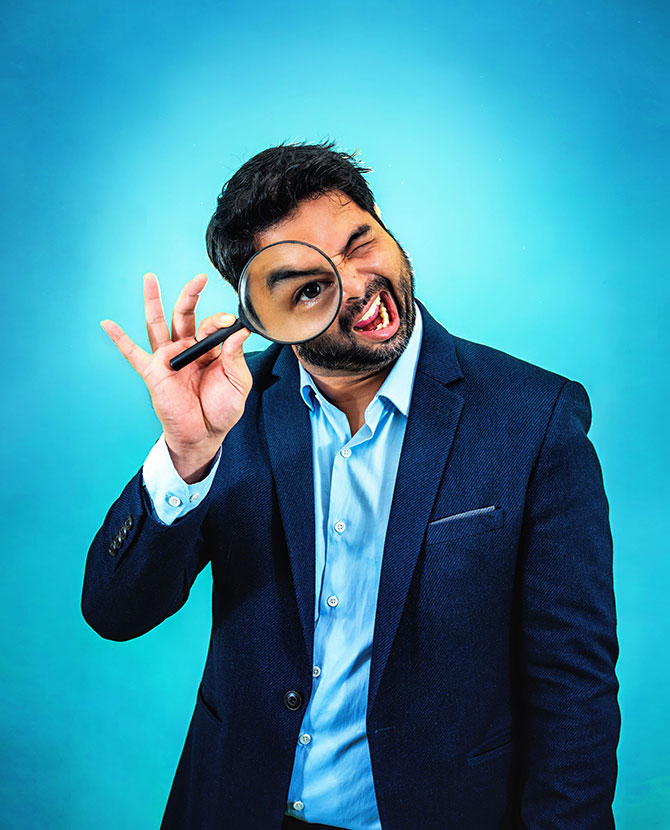
When and how did you decide to do comedy for a living?
At a very young age, I think around 13 or 14. I was a habitual tension breaker everywhere. There had to be something said to make everyone laugh in every situation. Like a class clown. I was always getting in trouble for making fun of the powers that be—teachers, headmasters, parents. So, I was already punching up from an early age.
How would you describe your relationship with humour?
As someone who’s profession depends solely on it? Very emotionally taxing and time demanding. But like all marriages once there’s balance, everything works out well.
Are all of your comedy materials based on real-life experiences?
Most of it, yes. If not mine, someone else’s that I can relate with.
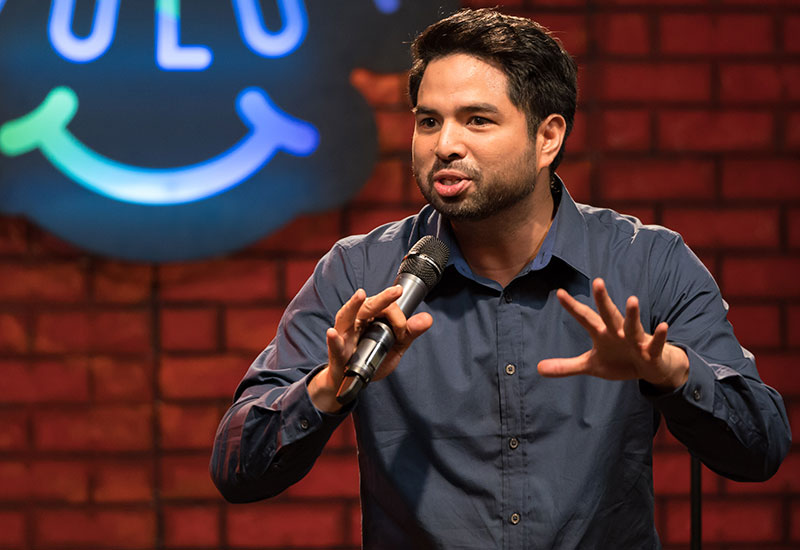
It’s a comedian’s job to make people laugh/happy; but what makes you happy?
Having that as my job and coming home to my family.
Can you share your proudest or most memorable joke or comedy project so far?
Starting Malaysia’s first Comedy Club and sustaining it until today for more than eight years running. The nature of stand-up comedy is so hard, every job done right becomes the proudest moment of my career, be it in a big theatre or ballroom or a small intimate gathering.
What is the most challenging part of being a comedian?
Learning to become one and then realising you need to learn more and more. One could say the challenging part is also what’s so appealing about pursuing it.
It’s no laughing matter that some comedians suffer mental health issues. As a comedian, can you share why and how do you deal with the pressure that comes with your job?
Due to the late night work hours and after show meals, it is hard to keep a healthy diet and regular sleep pattern so it does take a toll. Like any other job, stress comes with it and it can lead some to depression. Everyone has their own remedy. There has to be multiple accessible channels for those who need help. I take it one show at a time. Kill one, then move on to the next. The stage becomes my safe space.
In your own words, what makes comedy powerful?
As one of my favorite comedians, Summit Annand, says, “It’s a language of emotion.” As another one of my faves, Papa CJ, puts it: “Stand-up comedy is such a journey within.”
From my experience as a performer and Comedy Club runner, I can safely say, there isn’t any other setting where such a diverse crowd in terms of race, age, class, and so on, can sit in a room and laugh together. When you are there and you see that moment happen in a comedy show, you really feel that magic of it.
What advice would you pass along to a budding comedian?
Stick to your time and stick to your guns. Fear is worst enemy, but treat it with respect as it may guide you to become the best version of yourself on stage. Master the art of listening, before you think about learning the art of talking. Always be true to the crowd and true to yourself.
Oh, and don’t take advice from other comedians.
Keep up with Rizal on Facebook, Instagram, YouTube or his website.
Gajen Nad

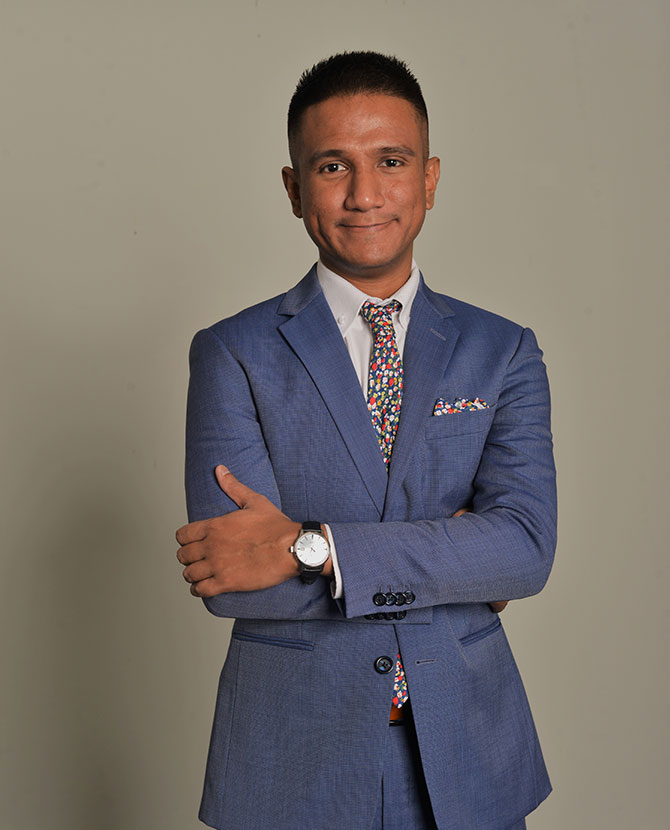
When and how did you decide to do comedy for a living?
I started stand-up comedy in 2012 as a hobby. I was a final year mechanical engineering student in Monash University. Don’t get me wrong, though it’s a career now, it is still my hobby. In 2015, on my excel sheet, I extrapolated my comedy income gradient and it intersected with my expenses in a future yea—that’s when realised it could be a career. The goal then was to be a full-time stand-up comedian by 2020. In 2018, I left my job as an IT consultant in Accenture to pursue stand-up comedy full-time.
How would you describe your relationship with humour?
Humour is literally like my best friend. It’s my go-to when I’m sad or depressed.
Are all of your comedy materials based on real-life experiences?
Most. I believe that a good joke must have a certain truth to it. That’s why I attend family gathering—lots of material.
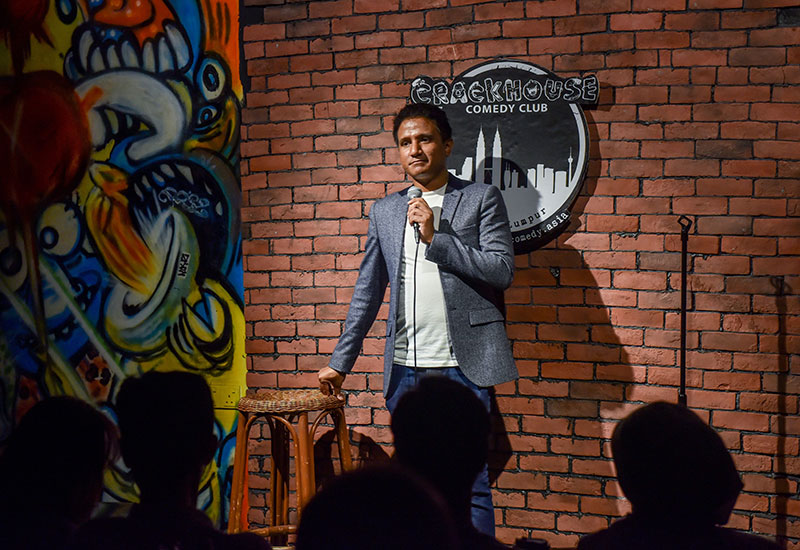
It’s a comedian’s job to make people laugh/happy; but what makes you happy?
To be frank, making people happy is what makes me happy. After my first performance in February 2012, I concluded that laughing is good, but making strangers laugh is a whole new level. In terms of what makes me laugh, it can vary from life experiences to slapstick videos, animal videos, stand-up comedy shows, comedy films, and parliamentary videos.
Can you share your proudest or most memorable joke or comedy project so far?
I will be doing my first one-hour solo stand-up comedy show this year around the third quarter. Dates and venue are not confirmed yet but I will announce on my social media pages by end of April 2022.
What is the most challenging part of being a comedian?
The most challenging part of being a stand-up comedian is being a stand-up comedian. Everything from thinking of joke ideas to writing the setup, the punchline, the delivery, the performance, the review, the rewriting—and the cycle repeats until the joke is polished and proven. Then, you’ve got the finance part which is another huge obstacle. I’ve seen many new faces in the open-mic stand-up comedy shows in the last 10 years and I can tell you that the success rate to be a full-time stand-up comedian is low. But the good news is, if you enjoy what you do, you won’t give up. For inspiration, there are stand-up comedians who are multi-millionaires like Jerry Seinfeld, Ricky Gervais, and Harry Maguire.
2021Minister: The were lesser road accidents during the pandemic.2022Minister: The Russia-Ukraine war could impact global economic recovery.2023:Minister: Water is wet.
— Gajen Nad (@gajen_nad) March 1, 2022
It’s no laughing matter that some comedians suffer mental health issues. As a comedian, can you share why and how do you deal with the pressure that comes with your job?
Well, you feel like a hero on stage when you make people laugh but when you don’t, you take a big hit mentally and emotionally. I use positive thinking and holistic thinking to cope with this. If I don’t do well, I will tell myself, ‘Hey look here’s an area for improvement which means I’m growing’. That’s the positive thinking part. As for the holistic thinking, I’ll say, ‘Ok what was the root cause? What could be improved? Were there any positive takeaways?’ Then, ask for constructive feedbacks from the comedians who watched me.
In your own words, what makes comedy powerful?
Laughter unites people regardless of nationalities, race, religion, gender and background.
What advice would you pass along to a budding comedian?
Ask yourself: why do you want to do stand-up comedy? Knowing your why is the most important thing when starting anything. Once you know that and if your why is strong enough, everything else will fall into place. Good luck!
Keep up with Gajen Nad on Facebook, Instagram and Twitter.
Find more career stories here.
| SHARE THE STORY | |
| Explore More |



